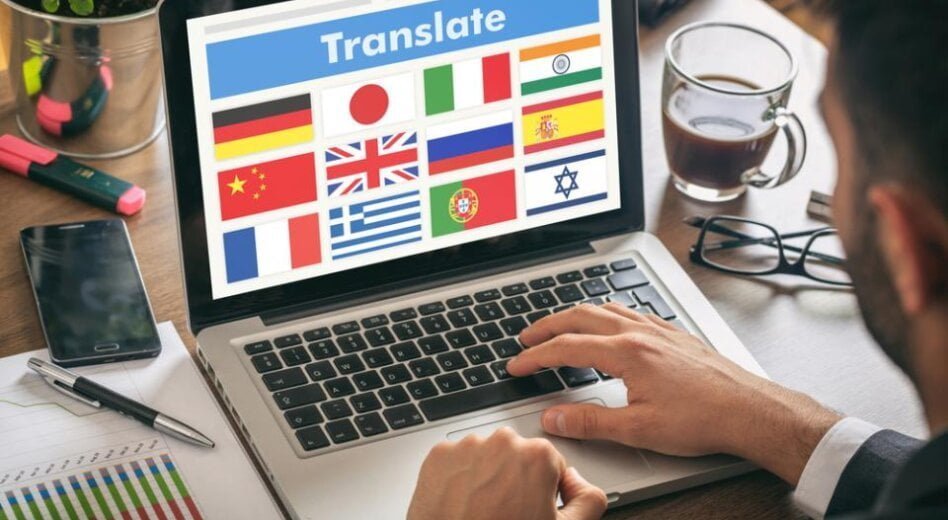Maybe your company is headquartered in New York City or Chicago where you’re lucky enough to have a French employee when you‘re expanding your market into France. She’s bright and articulate, and because she handles the shipping of your product to the EU she knows the technical details about every single item you manufacture. Why spend funds on language services for your French materials when this native speaker who already knows your company well can no doubt write the texts as effectively as anyone?
Good entrepreneurs and managers are accustomed to thinking in terms of cost-cutting, so saying no to extra services is instinctual. However, while it’s true that your French employee speaks French, it is not true that the hours she‘ll spend on translation will be „free.“ In fact, she has other tasks she‘s been hired to do, and those won’t be tended to while she‘s translating, a choice that‘s expensive, interruptive, and possibly a cause of employee tension and resentment. This point can be easy to overlook when considering your employees‘ ready availability and how well they know your industry’s product and terminology.
Another strategy that can sound like an easy translation solution is to work out an arrangement with the agents or distributors in foreign countries who are handling other aspects of your business. Theoretically, these people speak the language of your new customers and if they offer to make your materials available in their language at little extra cost as part of the whole deal, it can seem logical. Unfortunately, this scenario offers even less control and quality assurance than using an employee, and integrating such translations into an overarching translation strategy for multiple countries won’t be possible at all.
If professional translation by an ISO certified top 50 global language service company is not dirt cheap, there are numerous reasons for this:
* the work is complex, requiring years of training and testing
*the computer software tools (CAT) used to maximize accuracy are expensive
*the full translation process includes multi-layered quality assurance that results in virtually flawless text
*translation teams will be focused on your translation and available in multiple time zones all around the world
*these teams have the experience to handle any aspect of your project or any issues that arise
*when you’re ready, top language service companies have the skills to transcreate your texts into print, website, or any other form you request
Hands-on managers who fear losing control over their branding or customer connections when they assign texts to professional translators may not be familiar with how an accomplished company like Skrivanek operates. From the outset your industry expertise and involvement are sought. For example, the best way to ensure accurate translation of the unique terminology your company uses is to collaborate with your translation project manager to develop a glossary of terms that will be used by every linguist involved with your project. And throughout the process, we never just guess or take shortcuts – your knowledge and preferences are always incorporated, along with the advice of subject matter experts.
To give just one specific example, recently Skrivanek completed a sample translation for a potential client, promptly, but without the customary development of a glossary for their technical terms, which would have been used for an actual project. The client responded that they were content with their own in-house translation because they felt their industry terminology was just too difficult for anyone outside the company to understand. However, when their in-house translation was submitted to Skrivanek for comparison, our translator and a third-party independent reviewer found serious grammatical problems, missing commas, extra commas, misspellings, inconsistent accent use, illogical sentences, and other problems that contributed to an overall sense that the final in-house draft was unclear and did not sound like a native speaker. But this is no surprise. Employees not trained for language services but well-versed in a company’s technical operations are rarely good at translating or even writing. Speaking fluently does not require the same skill set that translation does.
In fact it’s far more likely that you will lose the finely tuned messages you have developed in your primary language by relegating their translation to someone who is not an expert at detecting and recreating the nuances of both the original and the target languages. Without the insight of professional linguists, maintaining your image and carefully crafted descriptions with the kind of consistency that sophisticated global consumers expect will be nearly impossible. With global networks of offices rooted in the markets you hope to reach, top 50 language service companies like Skrivanek draw their expertise from deep wells of firsthand cultural and linguistic understanding.
The most successful international corporations hire professional translators because they do not want to risk mistakes that will cost customers or possibly create PR nightmares. Even a single awkward phrase at a critical point can shatter your product’s credibility, and as a consumer, you have probably experienced this. As competitive and rapidly changing as the global market is, „almost“ accurate just isn’t good enough. Call Skrivanek to discuss every aspect of your company’s language needs and our methods for ensuring that the unique characteristics of your product are translated perfectly.
